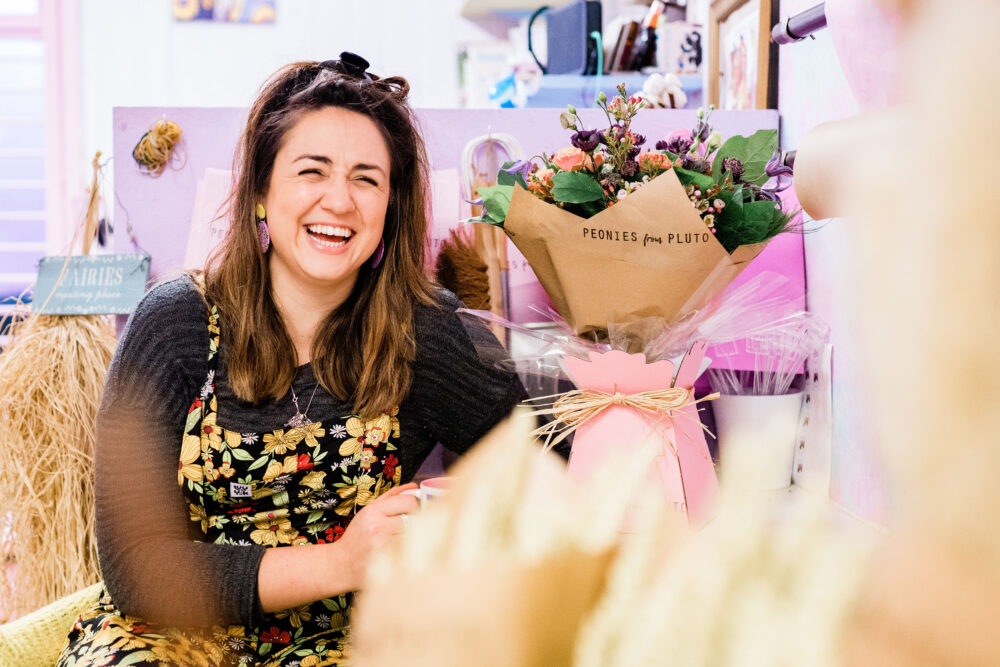Turn your side hustle into a business – top tips from entrepreneurs who succeeded during the pandemic

Although the pandemic undoubtedly made it much harder for many budding entrepreneurs and small businesses to get off the ground and survive, the number of entrepreneurs willing and brave enough to take that leap soared.
The pandemic seemingly created just the right conditions for entrepreneurship to flourish. With many people working from home and taking time to reflect on the big questions, answers came in the form of innovation, passion and drive. Twill’s ‘Breaking free from the 9-5’ interview series sheds light on some of the key lessons that both new and seasoned entrepreneurs can take from the pandemic.
1. Opportunities rather than challenges
According to a survey by Kauffman, self-doubt and fear were reported as a challenge by 58% of entrepreneurs with young businesses during Covid-19. For entrepreneurial success, it is advantageous to have a mindset that sees the opportunities that challenges can present rather than regard them as a threat.
There are countless stories of individuals taking the time to reskill or upskill during the pandemic, taking advantage of opportunities to learn, develop and grow and, for some, this resulted in the discovery of an entrepreneurial flair that they may not have otherwise unlocked. Alice Burrell started floristry business Peonies from Pluto with no prior entrepreneurial experience, and turned into a successful small business. Turning challenges into opportunities is the most important piece of advice she’s keen to share with other entrepreneurs. “Obstacles are part of the process. They reveal the parts of the business that need fine-tuning and help us to learn, adapt and become more experienced entrepreneurs”, says Alice.
2. Committing to sustainability
Not only did pandemic businesses show overall promising growth in the UK business sector, with over £20bn projected to contribute to the nation’s economy, these newly-founded start-ups also promise an increased commitment to sustainability. Recent reports cite that businesses born during the pandemic are 20% more likely to integrate sustainability into their core values, compared to pre-pandemic start-ups. This is an important contribution in terms of environmental awareness spanning various industries, with examples of sustainability-driven businesses including everything from activewear to sustainable furniture.
Charlotte Cochrane from Twisted Loom, a limited-edition furniture company, has found a successful niche in what she describes as ‘thoughtful furniture’: “I’m fighting a one-woman battle against ‘fast-furniture’! Over recent years I’ve had lots of enquiries about re-upholstering modern furniture that is prematurely falling apart. It’s depressing to see big retailers producing what has almost become throw-away furniture. So in response to that I created my own brand of ‘thoughtful furniture’ which is unique and made to last.”
3. No such thing as failure
Failing to grow their business is a common worry many first-time entrepreneurs experience – according to research aimed at the UK start-up scene, a fifth of UK small businesses fail within their first year, and around 60% fail within their first three years. In the business world however, failure may simply be part of the path to succeed.
Entrepreneurship is a long-term commitment and a journey in itself, according to Alessandro Savelli, who launched artisan pasta delivery service, Pasta Evangelists, after a previous business initiative had failed. “Trial and error is more often than not the case when it comes to starting a business. The way to figure out what works and what doesn’t is by doing” – Alessandro’s advice to aspiring entrepreneurs is to not be deterred by failing, but rather use this as a learning opportunity and persevere in their work.
—
Image credit: Twill




